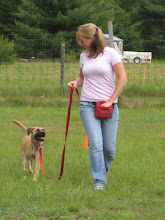Imagine you are in a relationship. For the sake of argument, let's just say you are married and since this is from my point of you, I will call the significant other your husband, but it can be anyone. Husband, wife, mom, dad, girlfriend, boyfriend, close friend.
Tell me which relationship is healthier, stronger, and built around more positive associations:
Scenario 1:
You had a long week of work.
On Day One, your husband complains because the dishes are piled up. You left the back door open, letting the cold air in while the heat is on. He didn't notice the fact that the laundry was done, the kids were fed, bathed, entertained, and put to bed. Dinner was cooked. He just made a comment about the dishes being piled up and you letting all the cold air in.
The next day, you make sure the dishes are in the dishwasher by the time he gets home, all doors and windows are closed, the kids are fed, entertained, and bathed. Dinner is made. But by the time you did all that, the kids toys are still out. Your husband makes no comment on any of those things. The night comes and goes.
Day Three - Windows are closed, dinner is made, laundry is done, the kids are set, but you're a bit behind on housework and your husband walks it and says "what's that smell??" Ok, so maybe the dogs are overdue on baths or maybe you haven't vacuumed in a few days but c'mon now - look at everything else you've done, just since being home from work? Of course he didn't notice the good...
I realize this is stereotyping or maybe I'm reversing it but work with me here. Husband #1 uses very little praise, doesn't act grateful, doesn't really give any positive reinforcement and quite frankly, only has complaints to give when commenting. He doesn't think anything of it, but how do you think the wife feels? Sure, to avoid hearing the complaints, she may do the dishes on day 2. She may freshen the home's scent on day 4, but what do you think her emotions are toward her husband? I tell you what, if it were me, I wouldn't be thinking happy thoughts about him. Things would be tense. If I were the type to avoid conflict, I may get a little passive aggressive. If I didn't avoid conflict, we might openly argue about it.
Okay, so scenario 2. All of the above happens on each day but this time, instead of complaining, your husband thanks you for remembering to shut the windows/doors on day 2. If you were to do it again, he may mention that you left them open but he doesn't say it to make you feel terrible because it's your first known offense and clearly you didn't do it on purpose but he does want to make you aware. On day 2, he also compliments dinner, which makes you very happy. He might even read to the kids before bed so you can relax for a few.
On Day 3, he doesn't comment on the smell of the house because he can see everything else you did. Instead he thanks you for picking up (since the night before he had noticed things being in disarray). So, in this husband's methods, not only is he rewarding you (verbally) for improving on the day before or on a dinner well made but he is creating a better relationship with you. You have positive emotions toward him.
Ok, I also realize this may not seem entirely realistic on a daily basis but a significant other who can get in the habit of acting grateful, thanking you for what you have done, complimenting you (even if to buffer a later reference to something not so great)... overall, it creates a stronger relationship, not one built around learning due to avoidance of nagging. Does that make sense?
Now, you may be asking why I, as a dog trainer, am blogging about this? It's because I need to stress the importance of not nagging your dogs. Praise the good. Notice the right choices. Don't just tell them what they did wrong, thereby punishing the behavior. If the latter is all you do, they may learn and they may do it but they won't have any positive emotions about doing it. Let's teach our dogs to work for us because it's worth the praise, the treats, the petting, the reward. That's not to say that you can't ever give consequences to your dog but when you do so, it will be more significant, more noticeable. If all you ever do is nag them, get in their face, hover, tell them no, then who cares if you have to tell them No one more time? They're used to it. And like you less for it. What fun is that kind of person to have a relationship with?
And who says we can't TRAIN our husbands, wives, kids, etc?









No comments:
Post a Comment